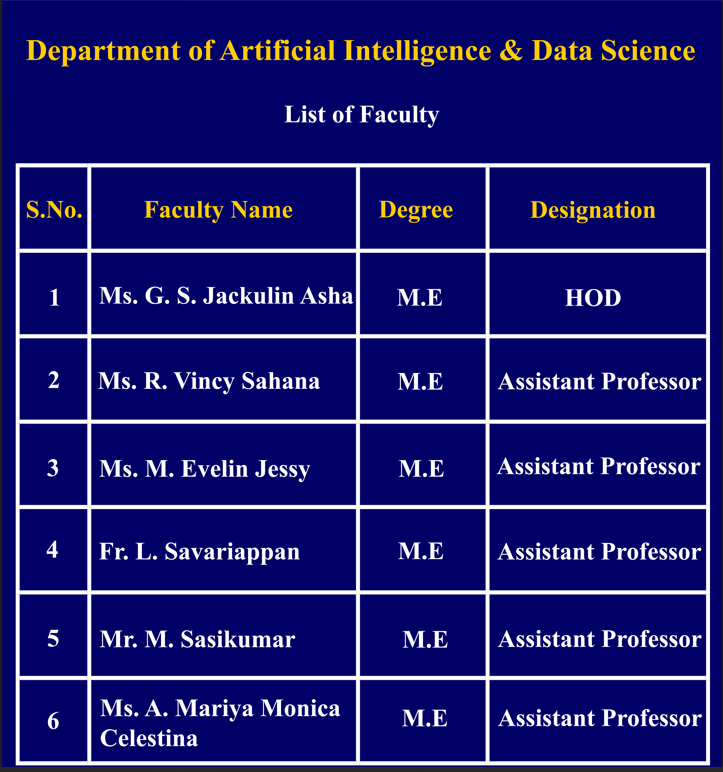St. Joseph College of Engineering establishes a new department “Artificial Intelligence and Data Science” in the year of 2022 with an intake of 60, with an objective of imparting quality education in the Artificial Intelligence and Data Science Engineering. The department will be motivated by its dedication to being leaders in the field of artificial intelligence and data analytics research, design, and development of next-generation cutting-edge technologies.
OBJECTIVES
• To develop motivated and skilled engineers through theoretical knowledge and practical applications.
• Provide students with the knowledge and skills necessary for analyze and solve problems using mathematical models, then development and creativity in various fields of work through the use of data science and artificial intelligence.
• To provide the guidance to develop moral and ethical attitudes.
